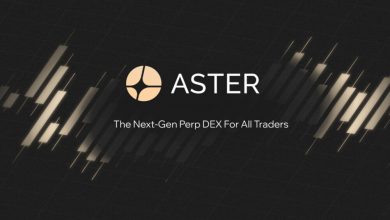The Way Automation and Artificial Intelligence Are Changing Retail Management

Integration of artificial intelligence (AI) with automation is causing a radical change in the retail sector. Companies are using these technologies to simplify processes, raise client experiences, and change decision-making procedures. Solutions enabled by artificial intelligence enable stores to tailor marketing plans, forecast customer behavior, and maximize inventory control. Reducing manual labor, boosting productivity, and guaranteeing accuracy in retail operations depend critically on automation. With instruments like retail compliance software streamlining compliance management, one important area where artificial intelligence and automation are having a major influence is regulatory adherence. Retailers who keep using these technologies will be positioned for more operational efficiency, better consumer happiness, and more profitability.
Improved Supply Chain Management
Retailers’ tracking, management, and replenishment of supply are being changed by AI-powered inventory control systems. By combining with point-of- sale (POS) systems, automation guarantees real-time updates and lowers human mistakes, hence simplifying inventory monitoring. By helping stores maximize warehouse capacity, reduce waste, and streamline order fulfillment procedures, smart inventory solutions assist AI-driven procurement plans and automated restocking alarms guarantee that retailers always have ideal stock levels. Using artificial intelligence and automation in inventory control helps stores increase profitability and operational effectiveness.
Dynamic promotions and smart pricing
Retailers may maximize product price depending on real-time market developments, competitive information, and customer demand by means of AI-driven pricing policies. To optimize sales and profitability, dynamic pricing systems automatically change prices, therefore keeping stores competitive. By means of client data analysis and discount strategy determination, automation simplifies marketing campaigns. AI solutions enable stores to spot peak buying times and modify deals in line with them, therefore optimizing income potential. Customized discounts and loyalty programs improve customer involvement even further and inspire returning visits. Retailers may maximize income and consumer pleasure by incorporating artificial intelligence and automation into pricing policies, therefore generating a data-driven strategy.
Security Enhancement and Preventing Fraud
Prevention of fraud, lower theft, and improved general store security depend critically on AI-powered security systems. Real-time alerting of stores, detection of fraudulent trends, and suspicious transaction identification via machine learning systems Facial recognition technology backed by artificial intelligence enables store activity monitoring and incident prevention against stealing. Payment verification solutions driven by artificial intelligence help to lower fraud risk and build client confidence. Retailers may guard their company from financial losses and security breaches by including artificial intelligence and automation into security protocols.
Risk Control and Regulatory Compliance
Retailers have to follow different rules on data security, labor laws, and product safety. Compliance reports produced by automated reporting technologies help to minimize mistakes and save human labor by lowering Risk assessment technologies driven by artificial intelligence examine operational data to spot any compliance concerns before they become more serious. Retailers may also effectively handle audits, inspections, and certification needs with retail compliance software. Using artificial intelligence and automation for regulatory compliance helps companies to reduce risks, stay out from fines, and keep a good name in the market.
Through better efficiency, enhanced consumer experiences, and business operations optimization, artificial intelligence and automation are revolutionizing the retail sector. From inventory control to fraud protection, these technologies provide creative answers that increase competitiveness and profitability. Retailers using AI-driven plans gain from data-driven decision-making, tailored marketing, and more intelligent labor management. Modern retail companies run smoothly in part due to advanced pricing policies and automated compliance systems. Long-term survival in the sector depends on including artificial intelligence and automation as it develops. The retail compliance software help stores to guarantee regulatory compliance as they concentrate on expansion and innovation.

Source: The Way Automation and Artificial Intelligence Are Changing Retail Management




